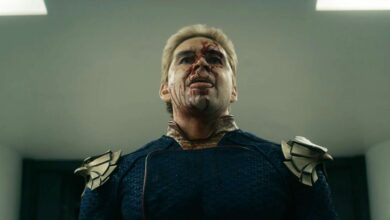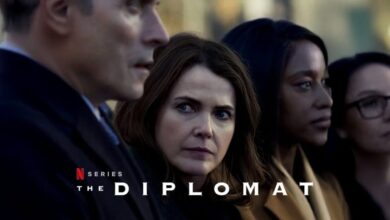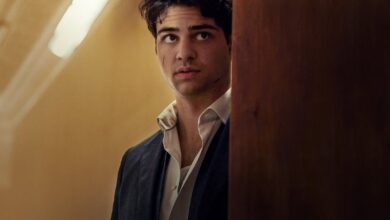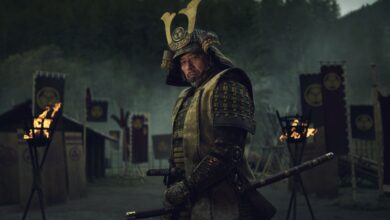Doctor Who – Wild Blue Yonder Review: Perfect Blend of Minimalism and Horror
Cast: David Tennant, Catherine Tate, Yasmin Finney, Karl Collins, Ruth Madeley, Jacqueline King, Miriam Margolyes
Director: Tom Kingsley
Streaming Platform: Disney+
Filmyhype.com Ratings: 4.5/5 (four and a half stars)
Doctor Who – Wild Blue Yonder is the second fundamental narrative piece of the mini-cycle dedicated by the BBC to the sixty years of the legendary science fiction saga, which has just been released and is visible, internationally, on the thematic channel DISNEY+, which is also among the producers of the third and new main series, called Doctor Who: Modern. The three specials, as declared by Russel T Davies himself, veteran showrunner of the franchise, constitute a sort of bridge between the old and the new and are precisely called The Bridge, awaiting the arrival of the Fifteenth Doctor, who will be the protagonist note of the first season of the new course. The series, old and very old fans should not be scared, is always the same, but it regenerates itself once again, like its protagonist, to conquer the current generations. A truly old-fashioned special, written and directed sublimely, full of quotes, both internal and, to a further surprise, also from a great American cinematic classic, as we will discover during its viewing.
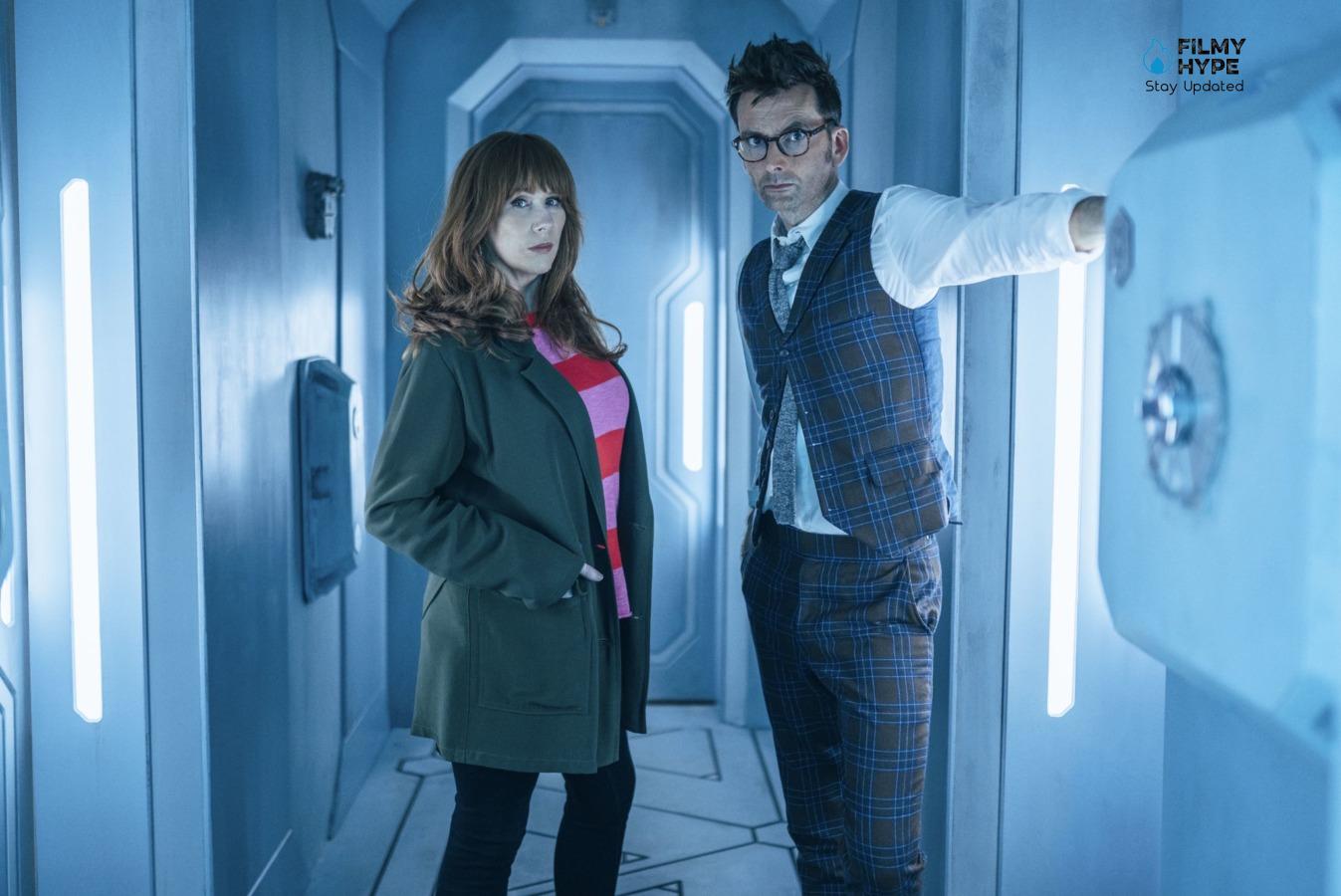
The Second Step on the Bridge offers a decidedly intriguing space-themed science fiction episode, with only two protagonists, who fight against their evil alien doubles, capable, moreover, as we know, of holding the scene alone. So, prepare the popcorn, but to be safe, avoid preparing the coffee while watching. Speaking of the three specials for the sixtieth anniversary of Doctor Who, showrunner Russell T. Davies explained how they are three distinct stories, with The Star Beast described as a family adventure, almost Pixar-like, while the other two episodes would have been stranger. A promise kept in the case of the second of these three stories, which arrived on BBC One and Disney+ with very little information about it, leading to such abstruse theories (many thought that it would be a story with multiple incarnations of the Doctor, as per tradition for anniversaries) that the director himself, Tom Kingsley, had to deny on social media that the lack of details was due to who knows what sensational surprise. Simply, the production wanted the episode, which we talk about in our review of Doctor Who: Wild Blue Yonder, to reach the public in its purest form, without too many spoilers ahead.
Doctor Who – Wild Blue Yonder Review: The Story Plot
Donna spilled coffee on the controls of the TARDIS, which became even more unpredictable as a result. After at least a brief stop (in England in 1666), the time machine lands aboard a spaceship and then disappears to recharge. Except that, in doing so, he most likely left Donna and the Doctor in danger, because the latter has reset one of the TARDIS’s security measures, which led him to move away in the event of a hostile situation. What this situation is remains to be understood, because there doesn’t seem to be a living soul on board the spaceship, and this has been the case for some time. There is only one robot advancing, slowly, along an endless corridor. Yet, something disturbing is in the air, something that could test the mutual trust between the Doctor and the one he likes to define as his best friend.
In the previous First Special for the Sixties, which we reviewed here, the most British of the companions agrees to make a last nostalgic journey together with her alien best friend, who has returned from the past. We were left with that small (but fun for the spectators) accident, in which the TARDIS circuits go crazy due to Donna Noble’s carelessness, who, together with the stainless Doctor, find themselves catapulted who knows where potentially ending up anywhere in time and space! The brilliant and mocking Russel T Davies already enjoys teasing viewers with a misleading episode teaser, in which the protagonists meet a historical character who, certainly better than all the others, could understand the “gravity” of the situation, except then suddenly veer towards something completely different.
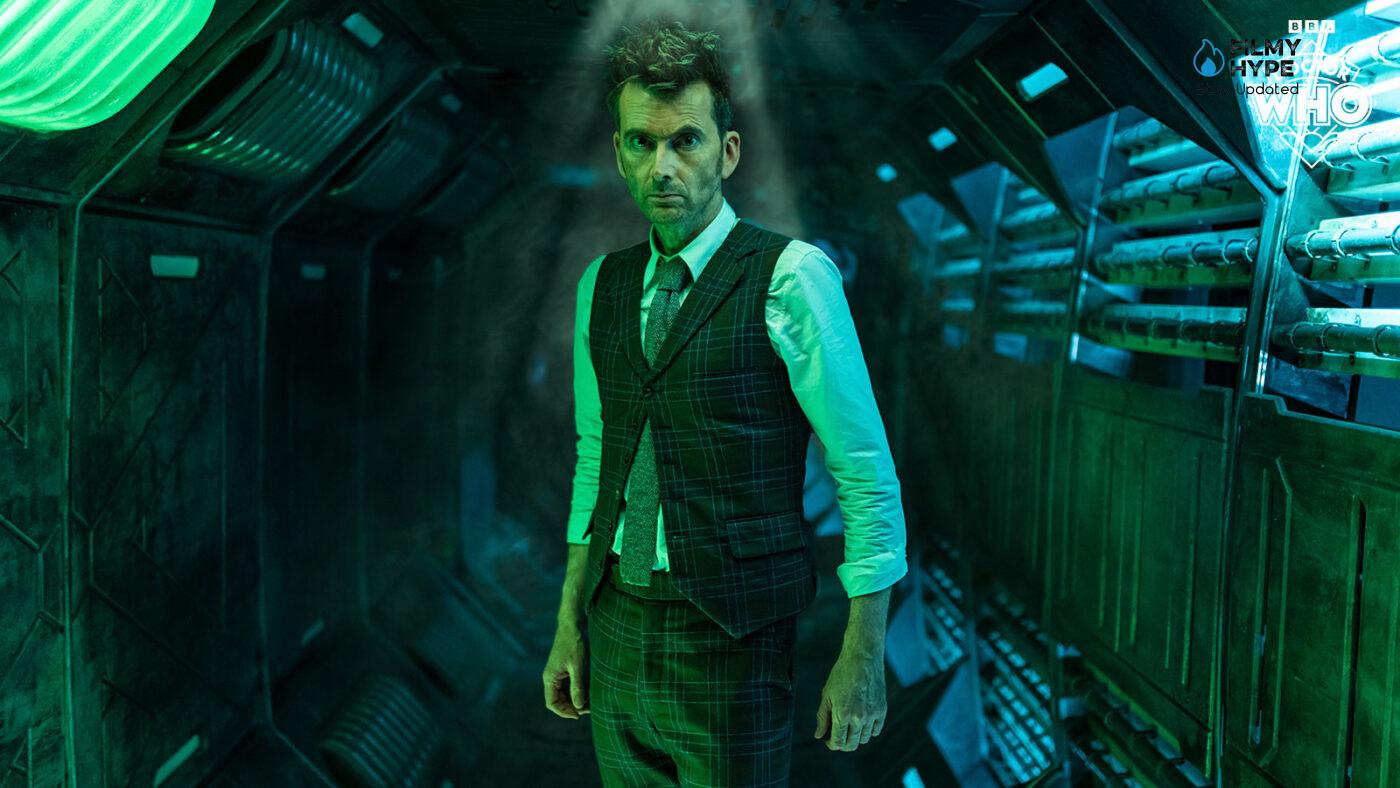
It is not the classic didactic historical episode of ancient memory, like the many already seen in the sixties in Doctor Who: Classic, right from the very first episodes with the iconic and grouchy William Hartnell. Surprisingly, the Second Special for the Sixties, entitled Doctor Who – Wild Blue Yonder, becomes a decidedly traditional sci-fi story, which takes our travelers on a mysterious spaceship, stuck, for some reason, at the borders of the universe itself, in the cosmic void, in a point that even the Doctor recognizes as having never been visited before. Alone, in absolute nothingness, where even stars, planets, and celestial bodies of any kind do not yet exist, and where the Big Bang has not yet arrived. The situation, let’s face it, is slightly dangerous, especially because the TARDIS has sensed a hostile presence of an unclear nature, and has therefore decided to remove the curtains for safety, during the repairs, leaving the Doctor and Donna in a situation of absolute solitude, to explore the gigantic spaceship, totally deserted, in search of information on what is happening and, above all, a way to go back. During the investigation, two mysterious doubles, similar in some ways to traditional doppelgangers, suddenly appear, gradually revealing themselves.
Doctor Who – Wild Blue Yonder Review and Analysis
Davis offers the loyal Doctor Who audience a brilliant creation, very minimal but equally complex, and dark. In a close and profound observation of the relationship of friendship, trust, and mutual affection between the Doctor and his companion Donna, Davis chooses a closed setting, a spaceship in which the two are confined with no possibility of escape via the Tardis. The Tardis, due to an erroneous pouring of coffee, begin to behave in a rather bizarre and unpredictable way. The Doctor and Donna send it for repairs, only to end up stuck in a huge spaceship abandoned on the edge of space. Although everything appears deserted, the protagonists will soon have to defend themselves from a subtle and shape-shifting threat, multifaceted and at the same time ectoplasmic.
The ship, far from being truly harmless and empty, is populated by a pair of shapeshifter aliens capable of lengthening, shortening, and imitating any shape they have the slightest known or observed. In imagery that highlights the great cinematic knowledge of Davis, the series’ historic screenwriter, the two terrifying “villains” take monstrous forms that recall The Thing or even – simply – the most iconic scenes from Ridley Scott’s Alien. Amorphous aliens are a complex and tricky enemy to face, especially in the closed context of an uninhabited spaceship, however gigantic it is. The enormous environment of the spaceship makes the encounter of the third kind even more disturbing: at every corner, a monster with different features could peep out, without being able to have the slightest inkling or warning: the most classic jump scares are perfect, created to art.
But the most fascinating story is precisely the human and relational one between the Doctor and Donna: the aliens, being able to take on their appearance, will put their relationship to the test which – although they are seen as soul mates – has also seen them be separated by fifteen years. The doctor’s study in all its declinations and possibilities, the continuous loving bickering with Donna, and the wavering trust at the appearance of the two terrible doppelgangers, find a perfect narrative and visual fit in Tom Kingsley’s direction. The director is a new addition to the world of Doctor Who, but his filmography is quite solid in British cinema. For BBC, his refined touch as a minimalist yet intense artist was expressed in Pls Like (2017) and Ghosts (2019).
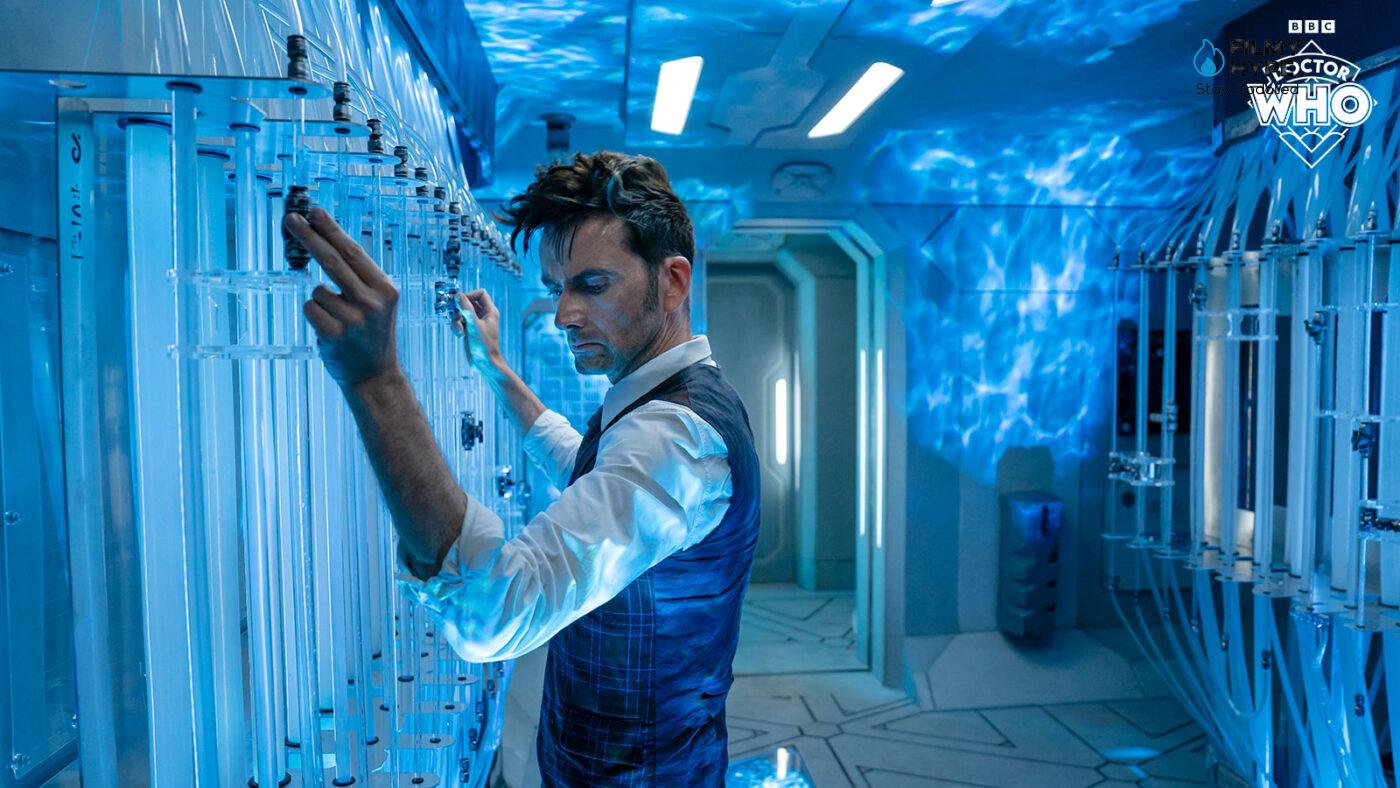
Doctor Who, with the second episode of a different, unusual trilogy, creates a minimalist and confined environment, a sort of spatial theater in which the two protagonists can express themselves in all their manifestations. Tennant and Tate’s superb acting blends perfectly with the themes covered in the episode: alienation, questioning of the self, the idea of identity and otherness, solitude and the value of existence about others, definition of one’s value linked to that of one’s human relationships. The minimal background allows the excellent acting, at times even theatrical, to take center stage: the two protagonists confront themselves, looking into the abyss of their souls and hearts. Fortunately, the two actors are more than capable of carrying sixty minutes of the episode on their shoulders, leaving the viewer breathless. What is particularly surprising is the dramatic intensity of Tate, an actress with a certainly dazzling comic repertoire in this unusual performance!
There is a second guest, to whom we wanted to dedicate a separate space, due to his importance within the franchise. This is Bernard Cribbins, to whom the episode is also dedicated, since the actor passed away, at the age of 93, shortly after filming his cameo (it was expected that he would also appear in the subsequent special, but Davies had those scenes rewritten as Cribbins was no longer able to participate). His first appearance in the world of Doctor Who dates back to 1966, not in the series but in one of the two films, considered outside the official canon of the franchise, which adapted the television serials centered on the First Doctor, with Peter Cushing replacing William Hartnell. He then became one of the adventure companions of the Decimo (Tennant) between 2007 and 2010, first with sporadic secondary appearances in the role of Wilfred Mott, Donna’s maternal grandfather, and then – with the same character – as a temporary sidekick full for Tennant’s first farewell to the series.
With this brief, emotional return of Wilf, which he had already mentioned in the previous episode, an era partly closes, and it is another way, given his previous experiences with different versions of the program, to celebrate six decades of life for one of the cornerstones of science fiction in English. As we mentioned at the beginning, the use of three specials for the sixtieth anniversary instead of just one allowed Davies to analyze the different souls of the series, and after the adventure suitable for every one of the first episodes he moved on to a short story darker, more adult, very attentive to introspection and to playing with what for the franchise are two basic notions, space and time (how the director manages the tension derived from elements that are inoffensive on paper is exemplary).
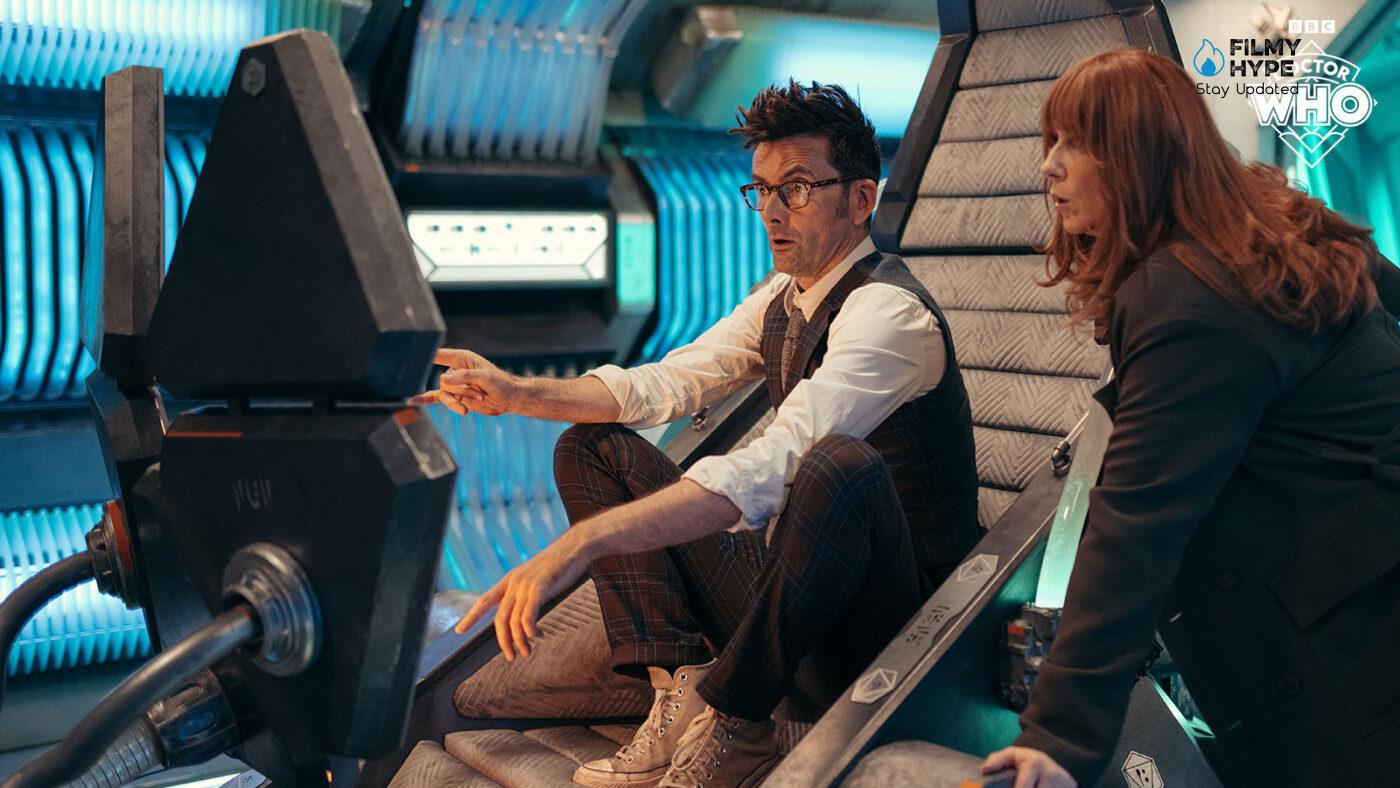
It is a story that goes back to its origins, to how the Doctor’s adventures can scare as well as entertain (it is a recurring image in British popular culture that of children jumping behind the sofa at the sight of the Daleks), but also in the sense that it still takes more time, after the slightly more frenetic pace of The Star Beast, to delve into the Doctor’s psychology, into what he is, into that mystery that accompanied him in the first years of the show (hence also the title of the program) and that the previous showrunner Chris Chibnall has recently restored with a twist that, judging by one of the most emotionally charged moments in this episode, will remain an integral part of the series in the years to come (which is hardly surprising if we remember that Davies, during his first management, immediately eliminated the Time Lords saying that the Doctor was the only one left). A concentration of mythology that nourishes what is above all a magnificent theater of acting experiments for Tennant and Tate, summoned onto a changing and limitless stage to summarize, in less than an hour, why the relationship between the Doctor and Donna was one of the luckiest ingredients on the show. And because, in a few days, it will be a great pain to say goodbye to them again.
Doctor Who – Wild Blue Yonder Review: The Last Words
The second of the three specials for the sixtieth anniversary thinks “small” and investigates what it means to be the Doctor, with excellent management of suspense in a minimalist and exterminated environment at the same time. With brilliant performances, and a surprising narrative line that is decidedly different from the entire Doctor Who genre, a way to show off the incredible chemistry between the two protagonists, Wild Blue Yonder is a poetic and profound work. Sixty minutes of claustrophobia, acid colors, and vitriolic greenish lights, a passionate script: the ingredients are mixed with simplicity and mastery to create a sad and profound sci-fi horror.




